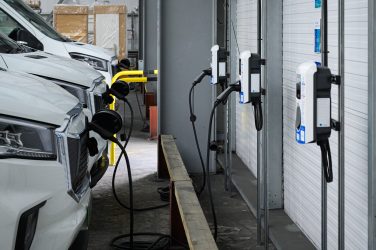Industry leader warns Britain faces skills gap in delivering Microgeneration Plan
The Electrical Contractors’ Association (ECA) Group CEO Steve Bratt has warned that the Department for Energy and Climate Change (DECC) Microgeneration Plan doesn’t go far enough in addressing the skills gap Britain faces if the country is to meet its renewable energy generation goals.
Bratt says that the interlinking of training for the Microgeneration Plan with the Competent Person scheme and the Green Deal is extremely sensible, as this will mean upskilled staff will be able to work on a vast range of projects over the next decade.‘We are particularly pleased to see the government has recognised that individuals should be competent to Level 3 as defined in the Qualification Credit Framework,’ he said.
As the electrical industry already faces a looming skills crisis, this means that there needs to be even more focus on boosting skills.
‘In the electrical industry, the average age is around 45. This means we face serious problems as these skilled individuals start retiring from the profession, or look to take a less physical, office based job. This will have a huge impact on the industry’s ability to deliver not only on the Microgeneration Plan and other low carbon initiatives, but also in general terms. More support is required to assist firms in upskilling their existing staff and on bringing new blood into the industry,’ added Bratt.
Bratt says that the ECA has previously recommended that training should be supported through contractual requirements for certain public projects.
‘Tougher contractual skills requirements would create a level playing field for those companies seeking to take on public sector work. Tying training to certain public sector contracts would ensure that companies taking on business had an eye on the need to train their workforce. It would establish the acquisition of qualifications as a business driver and, over time, help to engender a culture of employer engagement in training.’
Bratt concluded, ‘The Microgeneration Plan represents a huge opportunity for the construction industry. But if the government is serious about encouraging the widespread adoption of microgeneration, it needs to provide clear routes and incentives for all businesses to upskill their workforce to ensure public confidence is not damaged.’







